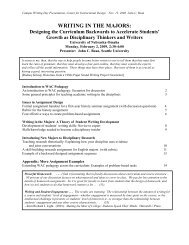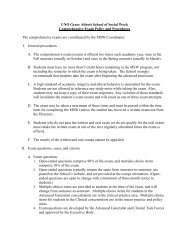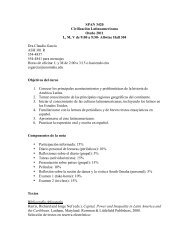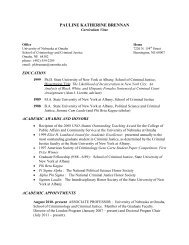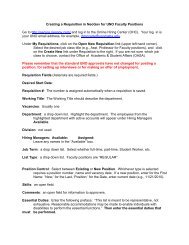âTHE BESTE GAME OF ALLEâ: PLAYING CHESS WITH FORTUNE ...
âTHE BESTE GAME OF ALLEâ: PLAYING CHESS WITH FORTUNE ...
âTHE BESTE GAME OF ALLEâ: PLAYING CHESS WITH FORTUNE ...
Create successful ePaper yourself
Turn your PDF publications into a flip-book with our unique Google optimized e-Paper software.
Gerry Wolfson-Grande 1<br />
I. Introduction<br />
While the Knight’s Tale does not incorporate a direct chess metaphor, an analogy may be<br />
made between its central themes and the game of chess, particularly when it is read in connection<br />
with the Book of the Duchess. Both poems are based on love pursued and won, only to be lost<br />
arbitrarily and capriciously despite the ordered environment in which they take place. In the<br />
Book of the Duchess, this process is compared specifically to a chess game between two<br />
individuals, the grieving Man in Black and the personification of fortune. The Knight’s Tale<br />
increases the cast of characters, the playing field, and even the number of levels of the game,<br />
wherein Fortune is not portrayed so much as a specific character but as an impersonal force<br />
which influences the actions of gods and humans, and the struggle to impose order on disorder<br />
plays out in both spheres as well. While there is no direct evidence that Chaucer may have<br />
entertained such a premise, in effect, the Knight’s Tale can be viewed as a multi-dimensional<br />
chess game played by primary and ancillary opponents on a variety of levels from the individual<br />
and mundane to the cosmic.<br />
II.<br />
Chaucer and Chess<br />
According to historian David Shenk, the game of chess is “a miniature reflection of<br />
society” which has been used as a metaphor encompassing “everything from romantic love to<br />
economics” for the entirety of its history. 1 In the Middle Ages, it was a part of the nobility’s<br />
education (male and female), as well as an often illicit amusement among the religious orders,<br />
despite frequent bans due to its association with gambling. By Chaucer’s day, several literary<br />
works on chess had been published. He would have been familiar with at least two of them,<br />
Jacobus de Cessolis’ Liber de moribus hominum et officiis nobelium (“Book of the customs of<br />
men and the duties of nobles”), or The Book of Chesse, and Jeu de Echecs by Jehan Vignay. 2







